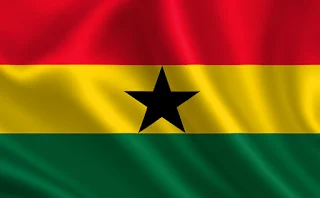Are you interesting in learning all the major ethnic groups in Ghana and their languages? We are here for you. In this article, you are going to learn all the various ethnic groups in the country and their spoken languages.
What Is an Ethnic Group?
Before we proceed, let's first of all understand what ethnic group is. Ethnic group refers to a group or category of people in the society who are bound by race, nationality, culture and language.
Ghana is a small West African multicultural and multilingual country. According to Wikipedia, there are over seventy (70) ethnic groups in Ghana. There are over eighty languages spoken in Ghana. Of all the eighty languages, Akan is the most extensively spoken among the indigenous languages, most particularly in the southern sector of the country.
According to some other reports, French is set to become one of Ghana's official language anytime soon due to the country's proximity to the Francophone countries (Togo, Ivory Coast, and Burkina Faso)
Akans are the major ethnic groups in the country. They are made up of 47% of the total population in Ghana [Source]. However, in this post we are going to focus on the major ethnic groups in Ghana and their languages.
Ethnic Groups In Ghana and their Languages
Below is a list of all the major ethnic groups in Ghana and their spoken languages:
Akans
Akans are the largest ethnic group in Ghana. The Akan Ethnic group includes the following subgroups: Ashanti, the Akwamu, the Akyem , the Akuapem, the Denkyira, the Abron, the Aowin, the Ahanta, the Anyi, the Baoule, the Chokosi, the Fante, the Kwah.
The language of the Akans tribe in Ghana is Akan or commonly refers to as Twi. Akan is the most and popular language in Ghana after English. According to some reports, over 80% of Ghanaians speak Akan as a first or second language.
Twi is spoken not only by the people of Ghana, but in other West Africa countries such as Cote D'Ivoire etc.
Ewe
Ewes are one of the major ethnic groups in Ghana with over 6 million people. Ewes are made up of 13.9% of the total population of Ghana as at 2015. The group is located in Togo, Southern Benin and Volta region of Ghana.
They speak Ewe as their language. The group is believed to be a descendant of the Adja people who migrated from Tado and intermarried with other groups as they moved in different directions towards southeastern Ghana and Benin.
According to available sources, the Ewe's main occupations are farming and sea fishing. They also engage in spinning, weaving, pottery making, blacksmithing and trading.
Ga-Adangbe
Ga-Adangbe is another ethnic group in Ghana. The group lives primary in the Greater Accra Region of Ghana. According to oral reports, Ga-Adangbe came from the region of Lake Chad and reached their destination in the 16th century.
Ga-Adangbe speak two languages: Ga and Dangme. Both languages are closely related. Dangme is exclusively closer to the Ga-Dangme languages than the Ga language. Other languages spoken by the group are Fon, Gen or Mina and Aja.
Ga-Adangbe has a very exciting culture and arts. The ethnic group celebrates an interesting festival called "Homowo" which literally means "hooting at hunger." The festival is mainly a food festival which celebrates the passing of that terrible period in the history of the Ga people.
Mole Dagbon
The Mole Dagbon is one of the major ethnic groups in Ghana. The group is settled in about six (6) countries in West Africa. In Ghana, the Mole Dagbon comprises of the Mamprusi, Dagomba, Nanumba and the Mosi.
The Mole Dagbon is said to be the second largest ethnic group in Ghana after the Akans. In 2019, the total population of the Mole group in Ghana was estimated to be above 5 million.
The spoken language of the Mole ethnic group is Dagbani or Dagbane. Most Dagbani speak English as their first language in Ghana. English is predominant among the Mole Dagbon kingdom.
Guan
The Guan ethnic group is found almost every corner of Ghana. This group settles almost in all parts of Ghana. As at 2020, the Guans consists of 3.7% of the total population of Ghana.
The Guans speak Gonja, Vagala, Sisaala, Nkoya, Dwang, Food, Kplang, Krache, and Ginyanga. The Guans are predominant in the Northern part of Ghana and Togo. However, they can be found in all the 16 regions of Ghana.
According to several sources, Guans are believed to be the first settlers in the modern day Ghana. The Guans migrated from the Mossi region of modern Burkina Faso around the 11th century.
Gurma
Gurma, also called Gourma or Gurmace is one of the major ethnic groups in Ghana. The group lives mainly in Northeast of Ghana and other West African countries.
According to Wikipedia, there are over 1 million people of the Gurma ethnic group. The spoken language of the group is Gourmache.
Other Ethnic Groups In Ghana Are Listed Below:
- Zarma
- Mamprusi
- Gurunsi
- Ashanta
- Akyem
- Komkomba
- Nanumba
- Frafra
- Chumburu
- Yoruba
- Efutu etc.
Conclusion
The above are the summarized major ethnic groups in Ghana and their languages. As I said earlier, there are over 20 different ethnic groups in Ghana, but in this article, we have summarized them into the major groups.
Other related contents
16 Regions In Ghana and their Languages
23 Best Tourist Sites In Ghana
50 Herbs In Ghana and Their Twi Names and Uses
Online Sources
[source] .wikipedia.


